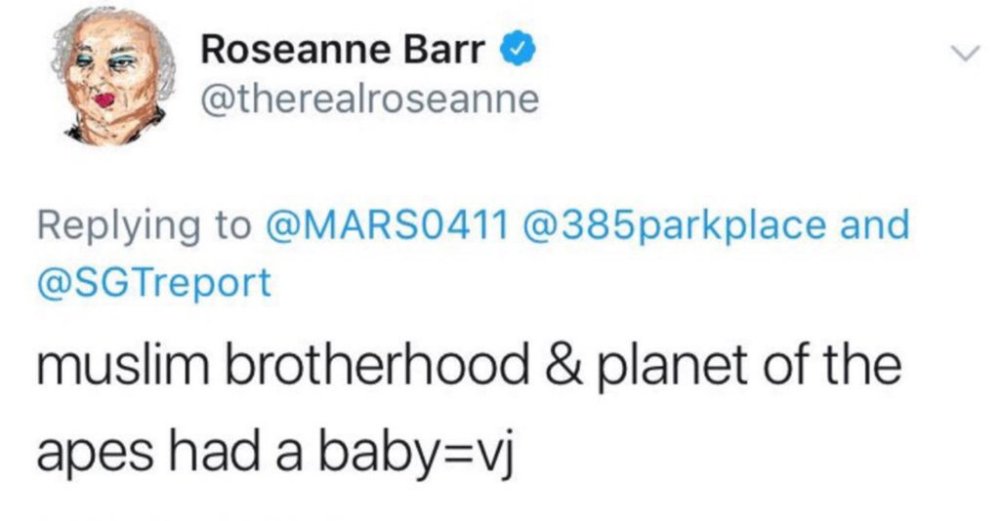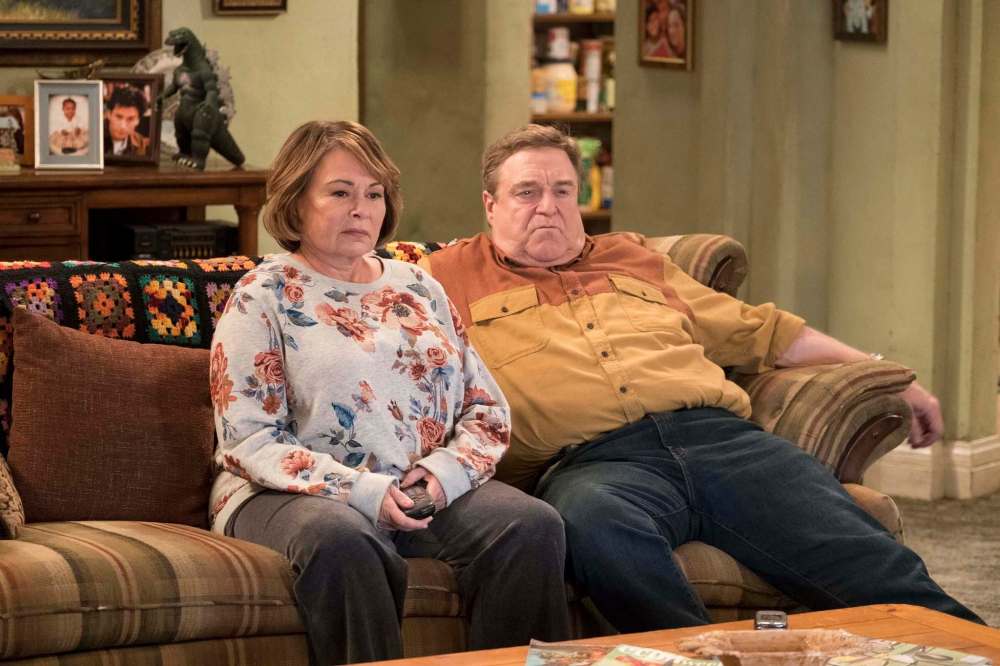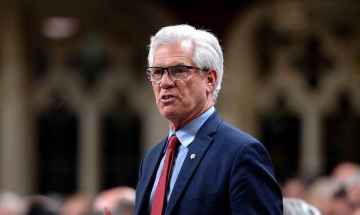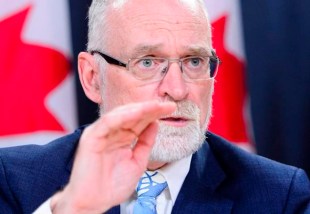Principle over profit: decision to cancel Roseanne a Hollywood feat
Read this article for free:
or
Already have an account? Log in here »
To continue reading, please subscribe:
Monthly Digital Subscription
$19 $0 for the first 4 weeks*
- Enjoy unlimited reading on winnipegfreepress.com
- Read the E-Edition, our digital replica newspaper
- Access News Break, our award-winning app
- Play interactive puzzles
*No charge for four weeks then billed as $19 plus GST every four weeks. Offer only available to new and qualified returning subscribers. Cancel any time.
Read unlimited articles for free today:
or
Already have an account? Log in here »
Hey there, time traveller!
This article was published 28/05/2018 (2416 days ago), so information in it may no longer be current.
As statements go, it was brief and to the point, a most economical use of carefully chosen words:
“Roseanne’s Twitter statement is abhorrent, repugnant and inconsistent with our values, and we have decided to cancel her show.”

The declaration, from ABC Entertainment president Channing Dungey, was startling for both its directness and the speed with which it was issued. And what it said, in no uncertain terms, is that in 2018, there are lines that even the most bankable of stars cannot cross. Roseanne Barr, the driving force behind the revival of the 1980s/’90s sitcom that became ABC’s biggest new-series hit in 2017-18, crossed that line.
Barr, no stranger to controversy throughout her career, posted (and then quickly deleted) a vile and racist tweet early Tuesday that essentially compared a former Obama administration senior adviser, Valerie Jarrett, to a primate. Jarrett is African American.
Barr, whose Twitter feed has been a repository for conspiracy theories, misinformation and discriminatory comments, seemed to have recognized fairly quickly that she had gone too far. “I apologize to Valerie Jarrett and to all Americans,” she posted. “I am truly sorry for making a bad joke about her politics and her looks. I should have known better. Forgive me — my joke was in bad taste.”
Barr followed with a second brief message: “I apologize. I am now leaving Twitter.”

The damage, however, was done. In short order, Roseanne‘s head writer, African American comedian Wanda Sykes, issued a Twitter statement that she would not return to the show. Series co-star Sara Gilbert weighed in with, “Roseanne’s recent comments about Valerie Jarrett, and so much more, are abhorrent and do not reflect the beliefs of our cast and crew or anyone associated with our show. I am disappointed in her actions to say the least.”
Shortly after Dungey condemned Barr’s comment and cancelled the show, the comedian’s agency, ICM Partners, announced it was dropping her as a client. There are sure to be further ramifications as the hours roll by.
While it isn’t fair to say the cancellation of Roseanne and the firing of its star were inevitable, it is reasonable to suggest ABC’s executives must have known there was a possibility of disaster when they decided to bring Barr back to TV in a reconstituted version of her hugely successful self-titled sitcom. Volatile, opinionated and prone to high-profile embarrassments during the series’ first run, Barr had faded from prominence in recent years, but remained cantankerous and unpredictable whenever she did re-enter the public arena.
Reviving Roseanne was a gamble on at least a couple of levels — first, ABC could not have been sure how its viewers would react to a sitcom whose central character was an unapologetic supporter of U.S. President Donald Trump; and second, the network’s executives were surely aware that hiring Barr, even after years of relative career-ebb calm, had the potential to turn into a big, loud mess.
On the former issue, ABC’s roll of the scheduling dice paid off — viewers embraced the right-leaning Roseanne in huge numbers when it premièred at mid-season, turning the rookie sitcom into a major hit while its characters explored a range of often-edgy (by broadcast-network standards, anyway) storylines.
It’s the latter question whose answer turned out to be a worst-case scenario. Simply put, when it came right down to it, Roseanne Barr simply couldn’t help being Roseanne Barr. And in the #MeToo-motivated age of increasing social-media accountability, Barr’s blatantly racist Twitter-blurt stepped far over a line that had perhaps only recently been drawn.
In making the decision to cancel the network’s biggest new-series hit of 2017-18, Dungey — the first African American woman to head a major network’s entertainment division — took a principled stand that emphasized character over commerce. In the long run of Hollywood history, that’s a rare feat.
In decades past, the anti-Semitic rantings of Mel Gibson, drug-addled misdeeds of Robert Downey Jr. and Charlie Sheen, and the laundry list of issues and incidents associated with Lindsay Lohan were not enough to dissuade Hollywood from continuing to invest in performers whose talents and notoriety guaranteed a monetary return.
Since the fall of producer Harvey Weinstein and the social awakening of the #MeToo movement, however, the landscape has changed. In Hollywood, there is no longer such a thing as “too big to fail.” Accountability is expected and demanded. And Roseanne Barr, in a character-revealing tweet-sized missive, was the author of her own demise.
The irony in all of this, of course, is that an ill-advised, ill-tempered, ill-informed and intentionally hurtful Twitter outburst will have been the undoing of a celebrity who, in both the fictional and real-life versions of herself, has been a staunch Trump supporter. The U.S. president, meanwhile, continues to use his social-media platform to issue tweets that are no less inflammatory and inaccurate, without any hint that he will be held similarly accountable.
brad.oswald@freepress.mb.ca
Twitter: @BradOswald
“Roseanne’s Twitter statement is abhorrent, repugnant and inconsistent with our values, and we have decided to cancel her show.”
— ABC Entertainment president Channing Dungey

Brad Oswald
Perspectives editor
After three decades spent writing stories, columns and opinion pieces about television, comedy and other pop-culture topics in the paper’s entertainment section, Brad Oswald shifted his focus to the deep-thoughts portion of the Free Press’s daily operation.
Our newsroom depends on a growing audience of readers to power our journalism. If you are not a paid reader, please consider becoming a subscriber.
Our newsroom depends on its audience of readers to power our journalism. Thank you for your support.
History
Updated on Tuesday, May 29, 2018 7:26 PM CDT: Adds photo







